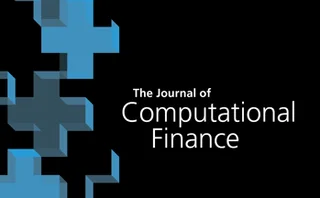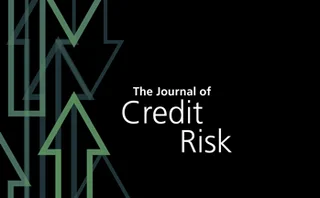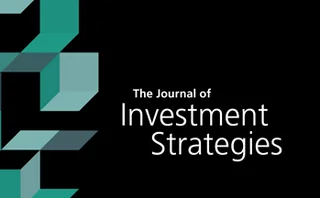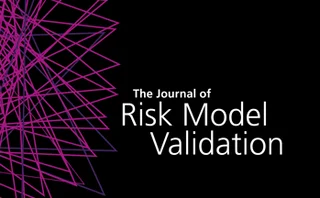Monte Carlo simulation
Fast stochastic forward sensitivities in Monte Carlo simulations using stochastic automatic differentiation (with applications to initial margin valuation adjustments)
In this paper, the author applies stochastic (backward) automatic differentiation to calculate stochastic forward sensitivities.
ε-monotone Fourier methods for optimal stochastic control in finance
In this paper, the authors give a preprocessing step for Fourier methods that involves projecting the Green’s function onto the set of linear basis functions.
Pricing fast-responding electric storage assets in the presence of negative prices and price spikes: a simulation-and-regression approach
This study focuses on the use of batteries for real-time power trading and proposes a simulation-and-regression-based valuation model.
A pairwise local correlation model
In this paper, the authors develop a new local correlation model that uses a generic function 'g' to describe the correlation between all asset–asset pairs for a basket of underlyings.
Portfolio optimization for American options
In this paper, the authors construct strategies for an American option portfolio by exercising options at optimal timings with optimal weights determined concurrently.
Ice changing margin model for move into options
CCP aims for Q1 2019 roll-out of new Monte Carlo-based methodology as it plans launch of index swaptions
Calculating capital charges for sector concentration risk
This paper proposes a methodology to quantify capital charges for concentration risk when economic capital calculations are conducted within a multifactor Merton framework.
Systematic testing of systematic trading strategies
This study reviews the various statistical methodologies that are in place to test multiple systematic trading strategies and implements these methodologies under simulation with known artificial trading rules in order to critically compare and evaluate…
Vibrato and automatic differentiation for high-order derivatives and sensitivities of financial options
This paper deals with the computation of second-order or higher Greeks of financial securities. It combines two methods, vibrato and automatic differentiation (AD), and compares these with other methods.
Podcast: Antonov on MVA, algorithmic differentiation and model validation
StanChart quant proposes new technique to compute MVA quicker
Efficient Simm-MVA calculations for callable exotics
Algorithmic differentiation are used to simulate sensitivities to calculate MVA
Bermudan swaption model risk analysis: a local volatility approach
This paper seeks to contribute a simple and (almost) model-free way of assessing the economic value of the Bermudan exercise right derived from a “minimal” local volatility enhanced interest rate model.
Importance sampling for jump–diffusions via cross-entropy
This paper develops efficient importance sampling schemes for a class of jump–diffusion processes that are commonly used for modeling stock prices.
Podcast: Fries on Monte Carlo, Greeks and the future of AAD
Research on AAD is not complete until it becomes easier to implement, says quant
The validation of filtered historical value-at-risk models
In this paper, the authors examine the problem of validating and calibrating FHS VaR models, focussing in particular on the Hull and White (1998) approach with EWMA volatility estimates, given its extended use in the industry.
Quants needed: how finance can use power of quantum tech
New machines have big potential in AI, valuations and VAR, but tech giants like IBM need help from practitioners
Adjoint algorithmic differentiation tool support for typical numerical patterns in computational finance
This paper demonstrates the flexibility and ease in using C++ algorithmic differentiation (AD) tools based on overloading to numerical patterns (kernels) arising in computational finance.
Monte Carlo payoff smoothing for pricing autocallable instruments
This paper develops a Monte Carlo method to price instruments with discontinuous payoffs and non-smooth trigger functions, which allows a stable computation of Greeks via finite differences.
Reducing noise is as important as radical change
Quants study ways to reduce noise in XVA Greeks calculations
Pathwise XVA Greeks for early-exercise products
The calculation of XVA Greeks for portfolios with early-exercise products is discussed
A hybrid tree/finite-difference approach for Heston–Hull–White-type models
In this paper, the authors study a hybrid tree/finite-difference method, which allows us to obtain efficient and accurate European and American option prices in the Heston–Hull– White and Heston–Hull–White2d models.
Calibrating Heston for credit risk
Marco de Innocentis and Sergei Levendorskiĭ describe a faster and more accurate method for market-implied calibration of the Heston model














